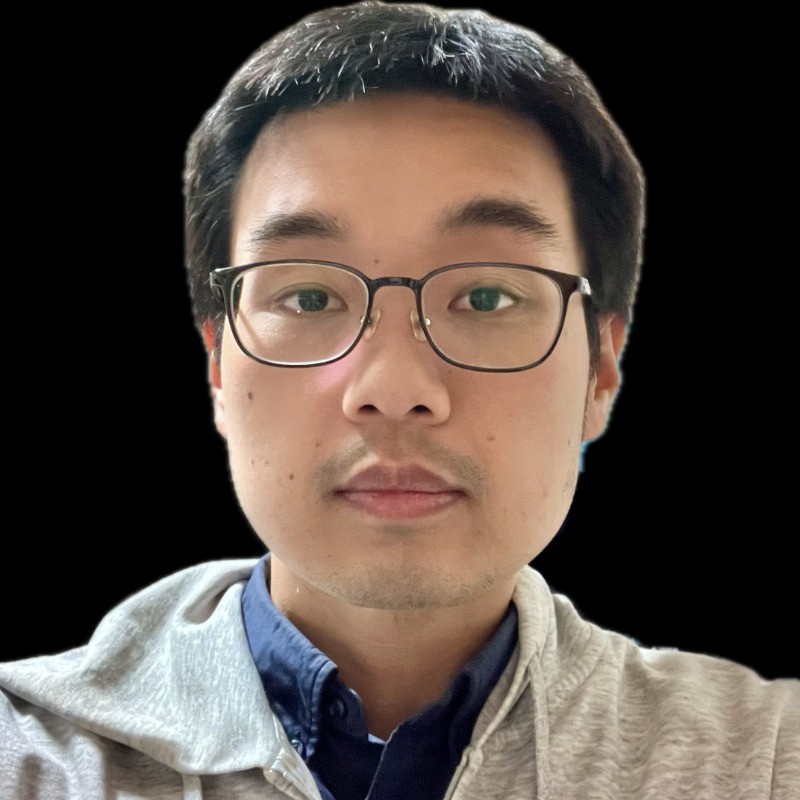Hiun Kim (김희언)

Hiun Kim is a research engineer at Naver Search and Clova team, where he focuses on machine learning, natural language processing, and information retrieval. Previously, he was a software engineer at Naver’s platform team.
Email: hiunkim.me [at] gmail.com
papers
You can also try my Google Scholar or DBLP profile.
Efficiency and Effectiveness of SPLADE Models on Billion-Scale Web Document Title
Taeryun Won, Tae Kwan Lee, Hiun Kim, Hyemin Lee
arXiv preprint. 2025.
[PDF]
The Role of Vocabularies in Learning Sparse Representations for Ranking
Hiun Kim, Tae Kwan Lee, Taeryun Won
arXiv preprint. 2025.
[PDF]
Intent-based Product Collections for E-commerce using Pretrained Language Models
Hiun Kim, Jisu Jeong, Kyung-Min Kim, Dongjun Lee, Hyun Dong Lee, Dongpil Seo, Jeeseung Han, Dong Wook Park, Ji Ae Heo, Rak Yeong Kim
IEEE International Conference on Data Mining (ICDM) Workshop. 2021.
[PDF]
What Changes Can Large-scale Language Models Bring? Intensive Study on HyperCLOVA: Billions-scale Korean Generative Pretrained Transformers
Boseop Kim, HyoungSeok Kim, Sang-Woo Lee, Gichang Lee, Donghyun Kwak, Dong Hyeon Jeon, Sunghyun Park, Sungju Kim, Seonhoon Kim, Dongpil Seo, Heungsub Lee, Minyoung Jeong, Sungjae Lee, Minsub Kim, Suk Hyun Ko, Seokhun Kim, Taeyong Park, Jinuk Kim, Soyoung Kang, Na-Hyeon Ryu, Kang Min Yoo, Minsuk Chang, Soobin Suh, Sookyo In, Jinseong Park, Kyungduk Kim, Hiun Kim, Jisu Jeong, Yong Goo Yeo, Donghoon Ham, Dongju Park, Min Young Lee, Jaewook Kang, Inho Kang, Jung-Woo Ha, Woomyoung Park, Nako Sung
Empirical Methods in Natural Language Processing (EMNLP). 2021.
[PDF]
Global-Local Item Embedding for Temporal Set Prediction
Seungjae Jung, Young-Jin Park, Jisu Jeong, Kyung-Min Kim, Hiun Kim, Minkyu Kim, Hanock Kwak
ACM Recommender Systems (RecSys), Late-Breaking Results. 2021.
[PDF]
IoT-TaaS: Towards a Prospective IoT Testing Framework
Hiun Kim, Abbas Ahmad, Jaeyoung Hwang, Hamza Baqa, Franck Le Gall, Miguel Angel Reina Ortega, JaeSeung Song
IEEE Access 2018 (Vol. 6, 15480-15493). 2018.
[PDF]
Object-orientation for Behavior Modeling and Composition
Hiun Kim
Korea Conference on Software Engineering (KCSE). 2017.
patents
Method, Computer Device, and Computer Program to Recommend Products to Buy Together
Hiun Kim, Rakyeong Kim, Jisu Jeong
KR Patent 10-2739833 (2024)
[WEB]
Method and System for Generating Product Groups based on User’s Intent of Search Queries
Jiae Heo, Dongjun Lee, Hiun Kim, Jooho Lee, Hyunah Kim, Dongpil Seo, Hyundong Lee, Jisu Jeong
KR Patent 10-2648300 (2024)
[WEB]
Method and System for Providing Special Sales Events based on User’s Intent of Search Queries
Jiae Heo, Dongjun Lee, Hiun Kim, Jooho Lee, Hyunah Kim, Dongpil Seo, Hyundong Lee, Jisu Jeong
KR Patent 10-2615815 (2023)
[WEB]
検索クエリのユーザ意図に基づいた商品群生成方法及びシステム
Jiae Heo, Dongjun Lee, Hiun Kim, Jooho Lee, Hyunah Kim, Dongpil Seo, Hyundong Lee, Jisu Jeong
JP Patent 7513656 (JP Patent of KR 10-2648300) (2024)
[WEB]
検索クエリのユーザ意図に基づいた特売イベント生成方法及びシステム
Jiae Heo, Dongjun Lee, Hiun Kim, Jooho Lee, Hyunah Kim, Dongpil Seo, Hyundong Lee, Jisu Jeong
JP Patent 7417877 (JP Patent of KR 10-2615815) (2024)
[WEB]